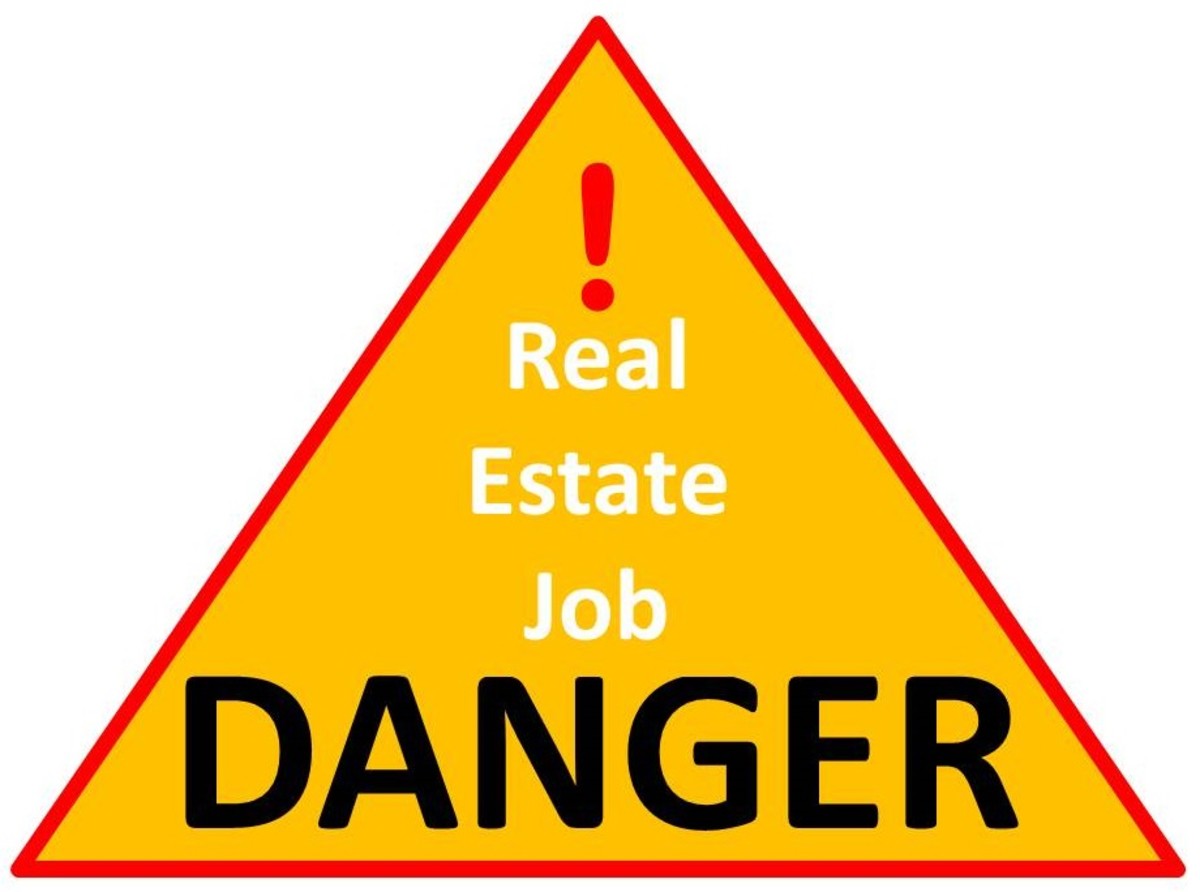10 Ways to Be a Smarter Home Buyer in Today's Real Estate Market

10 Ways to Be A Smarter Home Buyer in Today’s Real Estate Market
As a Realtor®, I’ve worked with many buyers, and I’ve even been on the home-buying side myself twice in the past few years. When it comes to looking for, and buying a home, I’ve noticed that most homebuyers are pretty naïve, uninformed and unequipped to buy a home– especially first time homebuyers. I remember I was the same way when my husband and I bought our first home. I was so mesmerized with the “idea” of owning my first home, and how great life was going to be as a homeowner, I totally glossed over all the boring, mundane details of contracts, insurance policies and closing papers. Thank God, my husband was more realistic and levelheaded, knowing all the right questions to ask, and keeping track of all the associated loan fees, closing costs and escrow reserves. (How ironic that I know more about those things now that I’m a real estate agent than I did when we were buying our OWN home!) But having been through the process – twice now – has helped prepare me, along with my training as a real estate agent, to help others NOT make the same mistakes I did, and to be smarter home buyers.
There are home “buyers” and then there are home “lookers”. To be fair, and for the sake of this article, I want to differentiate between an actual “home buyer”, and a “home looker”. I work with WAY more home lookers than actual buyers. I know I’m working with a BUYER when they sign on that dotted line on a real estate purchase contract and hand me an earnest money check. Then I’ve got a buyer! Home lookers (or “stump kickers”, as I call those who are just looking at land) are just “window shopping” for a home – most out of sheer curiosity, nosiness or just to “see what’s out there”. For the sake of this article, let’s just assume that I am talking about actual “BUYERS” – or at least those who have the genuine desire, financial means and strong credit needed in this market to buy a home

It’s a real estate jungle out there, and trust me – there are all kinds of “wild beasts” in the jungle waiting to devour an ill-informed and inadequately equipped buyer. So I’m going to tell you the 10 best weapons you need in your home-buying arsenal to fight the wild, savage beasts of real estate!
1. Strong Credit History
If you haven’t heard about all the new lending laws and credit restrictions being enforced in today’s lending industry, you must have been living under a rock! Before you do ANYTHING, if you are planning to finance a home, go to a local, reputable lender and ask them to run a “pre-approval” application on you; NOT a “pre-qualification”. A pre-qualification will only tell you whether or not you MIGHT be able to buy a home based on your credit score and income status, and is usually only good for the amount of a home you are making an offer on. A pre-approval will delve deeper into your credit history, employment history and income, and will determine how strong your credit history has been to further determine how much of a credit risk you will be.
While credit scores are very important (620 is the MINIMUM score most lenders require), it is also your CREDIT HISTORY that they are concerned with. You need to be able to show that you have been financially responsible with past purchases made on credit, and not defaulted or been late during the repayment period.Also, your employment and income history will be scrutinized as well, to make sure you can not only AFFORD to purchase a home, but that you can afford to make the payments, taxes, insurance and STILL be able to pay your every day on-going expenses, as well (commonly known as debt-to-income ratio).
And I can’t stress enough how important it is to use a REPUTABLE bank or lender to finance your home purchase. Try your personal bank or hometown bank first – doing business locally is always a good idea! A good lender can also explain the different loan programs that might be available to you, such as conventional, FHA, VA or USDA, as well as explain all the associated loan fees that come along with financing a home (you didn’t think they were going to give you a loan for FREE , did you??). And don’t be misled or duped by fast-talking “mortgage brokers” or swayed by TV info-mercials telling you how “easy” and “fast” they can get you approved for a loan. It is NOT a fast and easy process, and if anyone tells you it is, make like Forrest Gump and RUN – run fast and far, far away! As I said earlier, there are savage beasts in the jungles of real estate, and unscrupulous mortgage lenders are the worst! Your Realtor® should be a good source to provide you with a list of reputable lenders in the area, although they cannot sway you toward any particular one.
Extra Tip: Just remember, if you take the time FIRST to go see a reputable lender and get pre approved, you’ll save time LATER in the home buying process
2. Home Wish List
Almost every buyer THINKS they know what kind of home they want until they actually start looking at them. Houses are as individual as the buyers that look at them, and in today’s saturated market of bank owned, foreclosures and short sales, there are tons to choose from. Having a wish list of necessities and amenities can help you narrow down the choices and concentrate on finding only those homes that fit your needs and lifestyle.
Here are a few things to put on your wish list: price range, style of home, including whether it should be a stick built or manufactured home, move-in ready home that includes appliances or a “handy-man” fixer upper that needs repairs, size of home (either by square footage or number of rooms), number of bedrooms and bathrooms, size of kitchen and whether you need appliances to come with it, storage (inside and out), size of yard and whether or not it should be fenced in, preferred neighborhood (although as a Realtor®, we cannot steer you to or away from any particular neighborhood due to Fair Housing Laws), whether it should be in town or in the country, school district desired and proximity to jobs, shopping or medical facilities. You can then break these categories down into sub-categories and really narrow it down!
Extra Tip: While you may think you “know” just what kind of home you want, just keep an open mind when you’re looking because you’ll come across all kinds of unique features and options you might not have even considered! Also, take pictures (and notes) of each home you view, if you think it might be a contender. After looking at so many, you’ll soon forget the features of the brick house on Main St., or the cottage style house in the country! Going back over these pictures and notes can help you remember which homes had the most features you were looking for!
3. Means of Communication
In today’s advanced technological world, its almost inconceivable to imagine someone without a home telephone, cell phone or Internet service. And while not everyone has access to all these forms of communication, be sure to have at least TWO good means by which your Realtor® and your Lender can reach you. Having access to the Internet is vital so that your Realtor® can email suitable listings to you, as well as other documents that may need your immediate attention or signature. And although it should go without saying, if your Realtor® or Lender leave a voice mail or send an email, please RESPOND as soon as possible. Better yet, tell them which means of communication is the BEST way to reach you first, and then how best to reach you after that.
Extra Tip: Try to be available as much as possible – communication is the key to a smooth home buying process – for EVERYONE!
4. Flexible Schedule
Most buyers are obviously going to be employed and spend a major chunk of their day working. Your Realtor® and Lender understand that, which is why most showings and meetings occur after work hours, on the weekend and even at night or on holidays! That’s one thing I really love about being a real estate agent – it affords me the luxury of having a flexible schedule, even if it means I have to work on a Tuesday night, or Saturday afternoon. I don’t mind, but I expect my buyers to respect that I DO give up my nights and weekends for THEM sometimes, and I appreciate and expect them to adjust their schedules sometimes, as well.
More importantly, if your agent or lender schedules a showing or meeting with you, and you can’t make it for whatever reason, please have the COMMON COURTESY to CALL THEM and explain or reschedule! I have had buyers schedule showings with me, only to get to the property, wait 20 minutes and when I finally call them to see why they aren’t there, they tell me the “forgot”, or just “won’t be able to make it today”. Grrrr!
Extra Tip: If you’re serious about buying a home, be serious enough to show up at scheduled appointments, or call if you’re going to be late or need to reschedule.
5. Realistic Expectations
AsI said earlier, the entire home buying process has been through a major upheaval and the whole process is confusing, even for the most seasoned real estate agent or lender. It seems there are changes in every facet of the business, from new harder-to-understand lender forms, to additional detailed real estate disclosure forms, to un-timely delays in appraisals, home inspections, and most importantly, the underwriting process.
The most common problem I see with most homebuyers – especially FIRST TIME homebuyers, is their unrealistic expectations about the process of buying a home. (Thanks, HGTV, for so inaccurately depicting how “easy and fun” it is to buy a home with your “less than life-like”, cheesy real estate shows. I won’t mention any names here but believe me when I say you don’t just look at 3 homes, pick the best one, sign a contract and get the keys within a week!).
Yes, back in the “good ole days” of selling houses, you could lackadaisically show a buyer a couple of houses, have them fall in love with just the “perfect one”, go to the bank that afternoon, get pre approved for a loan, and close within 3-4 weeks. But it "AIN’T gonna happen like that NO MORE! " (excuse my bad language – just want to make sure I’m understood!) With tighter credit restrictions, backed-up underwriters, and unforeseen circumstances that may arise, you can expect it to take on average, 45-90 days to close a financed home in today’s real estate market.
And one more thing – DON’T get hung up on the closing date – it will change like the weather several times before it actually happens! Unfortunately, “time is of the essence,” means NOTHING to underwriters! I’m working with a couple right now who’s loan has been in the underwriter’s office for going on 4 months!! Its not that they haven’t been approved– that happened within the first 2 weeks – its all the documentation and re-verification that the lender is requiring and then taking 24-48 hours to scrutinize each new document that comes in. I swear Obama’s health care plan wasn’t scrutinized as much as a buyer’s loan file is these days! (Maybe underwriters should be looking at it instead of Congress??)
Extra Tip: This process can go on for days and days and days, and if you’re lucky, you MIGHT actually get an update once a week or so! Regardless of HOW the industry got to where it is today, or how mixed-up the process has become, it is NOT a “fun and easy” process for the most part! Buyers need to be realistic about the TIME the process is going to take, above all.

Something else to be realistic about is price.
Yes, it’s a “buyer’s market”, and yes, there are a lot of “good deals” out there, including foreclosures and short sales. But now more than ever, sellers are most likely NOT in a position to “give their house away”, just because the market is in the pits. If anything, they need to get EVERY PENNY out of it they can! I’ve actually told one seller client of mine to take his house OFF the market and “wait out” the market, rather than give it away and lose his equity. Not to mention what it does to property values in the neighborhood when a seller lets his house go for less than fair market value! Then you’ve just bought a home that decreased the value of your neighbor’s house, which, in turn, is going to decrease the value of the next neighbor if he sells cheap, and so on. It’s a vicious cycle that has started in A LOT of neighborhoods all over the country, and who knows WHEN or WHAT fair market value will be for these areas in the years to come!
A good Realtor® should be able to do a “comparable sales” report to determine what the fair market value of any home that you are considering making an offer on. But be forewarned – with housing prices dropping so rapidly because of the market fall-out, getting a true fair market value is going to be difficult, and may even “miss the mark” in some areas. Appraisals are not much better – the whole appraisal system now has changed and sometimes, appraisers who are not familiar with the local market, and thereby not qualified to give an accurate determination of value, are doing appraisals. The best way to determine a fair price for a property is to compare recent sales of similar properties (comps), have a home inspection done to determine how much to allow for any major repairs, and then determine what the property is “worth to you”.
Extra Tip:There’s an old saying the real estate business that, “the value of a property is what the buyer is willing to pay, and what the seller is willing to accept.” That is also why its imperative to have a good Realtor® representing you who knows how to negotiate with sellers to get you the best price possible!
6. Market Knowledge
There are a lot of buzzwords going around the real estate market today such as “foreclosure”, “short sale” and “REO” properties. Knowing the difference in these terms can make all the difference in how you look for and make offers on certain homes. Buying a home really is a complicated process, requiring a good, solid understanding of each part of the transaction. The more familiar you are with the terms and phrases used, the better equipped you will be to make an informed buying decision. I’m only going to briefly highlight the three terms referenced above, just for clarity. I suggest that buyers retain a good Realtor® who has a full understanding of these different types of homes to explain the risks and benefits of each one.
Foreclosure. A foreclosure is a home in which the owner has grossly defaulted in the repayment process, and the lender “repossesses” the house. No one really knows what caused the collapse of the housing market, which caused the influx of foreclosures, but some of the major players include sub-prime loans made on flimsy credit requirements and documentation, adjustable rate mortgages (ARMS) where a buyer’s interest rate suddenly jumps up, increasing their monthly payment, and crushing debt from credit cards and over-zealous spending on non-affordable luxuries. From this, borrowers started defaulting in their mortgage loans and the “house of cards” (no pun intended) started crumbling down faster than a polar bear on slick ice!
Foreclosures are usually sold at public auction and CAN be bought at a steal, but BEWARE, that “hot” property may just come with some even hotter problems! Most foreclosures are sold “as is” at public auction, meaning the lender is not willing to negotiate ANY repairs or concessions. It would be prudent and extremely wise to hire a good home inspector FIRST to thoroughly check out any foreclosed home you may be considering purchasing, BEFORE you make an offer. A lot of times, these homes are in great dis-repair and have been abused and neglected by the disgruntled owners who were “kicked out” by the lender. And although foreclosures are not always in a bad part of town, you’ll usually find them “grouped together” in less-than-desirable areas, further deflating property values.
On the upswing, a foreclosed home isn’t ALWAYS a “distressed property”, and with a little patience and due-diligence, you CAN get a great deal on a foreclosed home in a decent area. The clients I am working with right now have a contract on a really nice brick home that was a foreclosure, but didn’t bring enough at auction and was thus converted to an REO property (these properties are explained in the next section). The home is in well-maintained condition, and because the lender was eager to get it “off the books”, they were able to purchase it at a price well below the tax value, and with only minor repairs needed. A good Realtor® should be able to guide and advise you of the benefits and pitfalls of buying a foreclosed home, and help you determine if it’s a wise investment.
REO homes. An REO home is NOT a home where the famous rock band, REO Speedwagon is performing on Friday night! An REO property is one in which it was previously a foreclosure, went to auction and did not bring a desired auction bid. The property reverts back to the bank and becomes “real estate owned”. Most distressed homes on the market today are bank-owned homes ore REO’s. REO’s can be the best deals to look for because the banks are eager to sell them, and are more willing to negotiate with a buyer on terms, repairs and other concessions. Usually all back taxes and liens have been removed from an REO property, and the closing time can be as quick as 2 weeks to 30 days for a cash sale, a little longer if its being financed. Since REO properties are more of a liability to a bank, it is much easier to negotiate on an REO property with the bank than with a short sale property.
Short sale. A short sale is when the borrower cannot repay the mortgage loan, and the lender agrees to let the borrower sell the property and take less than what is owed on it, without going into foreclosure. This is a mutually consented agreement between the borrower and the lender, and the bank usually has the final say-so on any offers on the home. The turn-around time on a short sales is anything but “short” –sometimes it can take 2-3 months for a lender to accept a buyer’s offer on a short sale, meaning your home buying days can be long and frustrating. If you’re considering buying a short sale home, get a Realtor® who is experienced in dealing with short sales, and who can properly advise you on the implications of making an offer on these type properties.
Extra Tip: Even though a good Realtorâ is familiar with the basic differences in all these properties, they are usually not qualified or trained to give a buyer advice on the legal ramifications of purchasing one of these properties. Therefore, it would also be wise to retain the services of a good real estate attorney to clarify any confusing or miss-leading conceptions about purchasing one of these type homes.
7. Time
Buying a home is an extremely time-consuming process, and one that should NOT be rushed or pursued haphazardly. I’ve worked with buyers for MONTHS looking for that “perfect home”, only to wait another 2 months (or more) to get through the loan process. When you consider that buying a home is probably THE most important purchase you’ll ever make in your lifetime, it only makes sense to go at it slowly and with much caution. Unfortunately, most buyers are overly anxious to find their “dream home”, get an accepted offer, and move in within 30 days. A lot of times, this reckless method of buying a home results in what is commonly known as “buyer’s remorse”, and can cause undue financial, emotional and mental stress for buyers AFTER they move in. As I said before, the process in itself is very stressful – wouldn’t it be better to go through all that stress ONCE, instead of TWICE?
Unless you are under a time crunch due to unusual circumstances (i.e., job relocation), take your time when looking for your next home. There are so many homes on the market today, and most have been sitting there for months. Its very likely the home you looked at last month will still be available when you go back to it. Unless you just absolutely find that “dream home” right off the bat, there’s an advantage to “waiting it out” before1. putting in an offer – especially on a REO property. The longer those properties stay on the market, the more likely the bank is to accept your offer! Of course, this can be risky and you have to be willing to lose that home to another, more eager buyer!
And even though I touched on this aspect of time earlier, it deserves being repeated: make time for your Realtor® and Lender. They are both working hard to help you with all the twists and turns of buying a home, and their help is invaluable, as is THEIR TIME! If you can’t make a showing appointment, or meeting with your lender, have the common courtesy to call and reschedule or explain your cancellation. Everyone’s time is valuable and should be respected. In regards to the amount of time for the closing process, again, BE PATIENT.
Extra Tip: I tell my clients to “go on with life”, as if you weren’t even buying a home, and let things run their course. If its been a few weeks and you haven’t had an update from your Realtorâ or Lender, by all means, call them and see if they can do a follow up for you. A good agent will keep you informed at least once a week and intervene, if necessary, when there is unnecessary hold ups or delays.

8. A Good Realtor®
Naturally, as a Realtor® myself, I always think this should be the #1 weapon in every buyer’s arsenal. Having a good Realtor® to lead you against the “vicious foes” of the real estate market is one of the smartest things you can do to make the process go a lot smoother. Before I start bragging on all the things a good Realtor® can do for you, let me explain the difference between the terms “Realtor®”, and “real estate agent”.
All Realtors® are real estate agents; but not all real estate agents are Realtors®. A Realtor® is a real estate agent that is a member of the National Association of Realtors®, who subscribes to a strict code of ethics, and maintains a higher level of knowledge and understanding about the process of buying or selling a home. Some Realtors® even exceed that level by taking additional courses on specific aspects of the real estate market such as buying and selling bank owned properties and buying or selling land. The NAR (National Association of Realtors®) provides on-going training and industry guidelines to help Realtors® be better prepared to help their clients. I am a Realtor® and proudly serve my clients in the most professional and ethical manner possible.
A real estate agent is still (at least should be) licensed to assist buyers and sellers in the state they live, but unlike Realtors®, they are not sworn to uphold any particular code of ethics or standards. They may also not be up-to-date on the ever-changing facets of the real estate world, and do not have the resources available to them that members of the NAR have, or be members of the Multiple Listing Service, a service where all members have access to information about all the local and area property listings.
No matter which one you choose to represent you in your real estate transaction, make sure they are fully licensed to serve in the state you’re in and do no have any professional complaints against them OR the firm they represent. This information can usually be found online by searching for the real estate commission website of any state, such as the N.C. Real Estate Commission: http://www.ncrec.state.nc.us. Any licensed real estate agent can be searched on these websites, and there is also a lot of consumer information explaining how the real estate commission serves the general public.
While the average person might think a real estate agent just rides around and shows houses all day long, nothing could be further from the truth. And while that can be the most fun part for the buyer, it comes with a lot of behind-the-scenes work and preparation for the agent. With so many different kinds of homes on the market today, agents need to be aware of the status of each home they show – is it an REO, short sale, previous foreclosure, FSBO (for sale by owner) or privately owned? A good agent will check out each home to determine not only its physical amenities, but the size of the lot it sits on, whether the adjoining property is for sale (if its land), any city or county ordinances that might fall into play, and determine the home’s FMV, or fair market value, so they can advise their buyer as to how much their offer should be. All of this information cannot be found just by “showing” the home.
A lot of an agent’s time is spent in an office, on the computer or telephone researching the above aspects, and more. You will also need a good Realtor® to help with the offer and negotiating part of buying a home. Remember, a seller (unless its a FSBO) ALSO has a real estate agent working on THEIR behalf to protect their interests. Buyers need even MORE protection and representation, because THEY are the ones taking on the financial liability of buying a home. You wouldn’t go to court without a good attorney – neither should you try to buy a house with a good agent by your side!
Buyers come with a lot of questions, and a good agent will have, as many good answers as possible, or at the very least, are willing to find out answers to questions they don’t know. If your Realtor® or agent doesn’t seem very ambitious or eager to help you get the answers about a property you’re looking at, I would advise you get another agent who is more diligent and willing to work harder for you.
Another aspect of a good Realtor® is the mutual trust and friendship between the agent and the client. Because you’re going to be spending A LOT of time together, you need to make sure you can trust your agent, and that they are dependable. Most times, a natural friendship will automatically develop between an agent and their clients, and will hopefully last way past the closing stage. I have been friends with several of my past clients, and still send and receive birthday and Christmas cards to and from them. I’ve even had to play “bartender” or “therapist” with my clients, letting them whine, rant and vent, during the stressful periods that go along with buying a home. And while its great to have that kind of relationship, a good Realtor® will still always maintain a level of professionalism at all times with their clients. A good Realtor® can be a valuable source of real estate information for buyers, but that doesn’t mean they can’t also be your friend!
Extra Tip: There are so many more things an agent does for their clients that go way beyond the scope of what the general public sees on HGTV, and for brevity’s sake, I’ve only listed a small portion of them in this article. I suggest buyers sit down and write a list of questions and concerns they have about buying a home BEFORE they meet with an agent, and then go with the agent that has the most concise, clear and easily-understandable answers, along with doing a real estate commission background check on that agent AND its firm, and even asking for past client recommendations. Even if you sign with an agent to represent you as a buyers agent, that agreement can be usually be broken at any time, if you are uncomfortable or feel you’re not being best represented by that agent. In the coming weeks, I plan to do a more precise follow up article on what to look for in a good agent. Stay tuned!
9. A Good Support Network
Lets say it one more time – buying a home is STRESSFUL!!!! And while that stress will ebb and flow with the home buying tide, its still a good idea to have a good support network behind you to lean on during that time. Your agent will of course, be your first line of support when it comes to dealing with all the “real estate stuff”, but you also need a network of friends, family and confidants to strengthen that support system and give you all the encouragement and advice you need while you’re waiting, and waiting, and..... waiting!
As I said earlier, an agent will take alot of the brunt of emotion from their clients during the not-so-pleasant period of buying a home. But friends and family can also lend an ear or a sturdy shoulder to cry on when the inspection goes bad or the offer is rejected. Let your closest friends and family members know you’re about to embark on this exciting, yet somewhat stressful adventure, and ASK for their support and encouragement as you start your journey. Many will offer you a kind word, personal experiences and well-meaning advice. Some will just listen over a cup of coffee over the latest crummy house showing or much delayed loan update.
THEN, there are those who think they KNOW IT ALL, and want to “save you” from the terrible throes of your agent, the lender and the underwriter, or the whole “crooked real estate business”. They will tell you horror stories of how bad THEIR experience was, and how ALL real estate agents are just “out to make a commission”, or how the lender is going to “screw you in the end”. These “well-meaning” folks have more than likely been the victim of some of those “savage beasts of real estate”, that are unfortunately roaming around, giving us good, hard-working professionals a bad rap. Take what they say with A GRAIN OF SALT – they are just using YOU to vent to about THEIR bad experience that they may or may not be justifiably still resentful over. Of course if they DO have a legitimate complaint about anyone who has caused them to have that bad experience, you can always check it out and draw your own conclusion as to whether their complaint is legit. Alot of times, buyers are quick to blame someone else when it is THEY who were at fault. In the end, YOU are the one who has to deal with the agent, the lender and any other people or businesses involved in the home buying process. Use your best judgment, check out any unknown or suspicious facts, and be confident of those you put your trust in. Your friends and family should be a “safe haven of support” when you just need to “let it all out!”
Extra Tip: As you go through the home buying process, you’ll undoubtedly run across alot of other important people and companies you’ll want to get to know better – such as a good insurance company (for homeowner’s insurance), real estate attorney (for the closing), home inspector, as well as electricians, plumbers, termite contractors, etc. All these people provide a valuable service to a homeowner and it would behoove you to know who the best are in your area! Again, your Realtor® should be able to provide you with a Professional Services Disclosure Form to help you in selecting a source for each needed service. However, ultimately, YOU will pay the cost of each of these services, so its good to know you’re dealing with the BEST! Buyers should be pro-active and participate as much as possible in each aspect of the buying process, such as attending the home inspection, discussing tax issues of buying a home with an accountant and asking questions when circumstances arise that they don’t understand.
10. Optimistic Attitude
If you go into the process of buying a home with a good, positive mental outlook, things WILL go more smoothly, even amidst all the chaos. Even though it IS a major step in your life, it can be one of the most rewarding, exciting and fulfilling experiences you’ll ever have! Owning a home is STILL the Great American Dream, and you have every right to feel as optimistic and confident about buying YOUR home (or first home!) as countless thousands before you! So go boldly into the home buying journey, and you’ll discover a new and wonderful world where dreams DO still come true!
Extra tip: When the stresses of buying a home start to take its toll on you, take a break by getting away for a day or two, or visiting a friend, taking in a movie or doing an activity you enjoy. Sometimes just “stepping back” can help readjust your attitude and help you get recharge your home buying batteries!
Finally, even with a “fully loaded “ home buying arsenal, buying a home still comes with alot of demands, questions, confusion and yes, stress! But having the “weapons” mentioned above will help make you more a more knowledgeable, confident and smarter home buyer!







